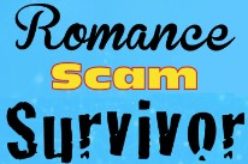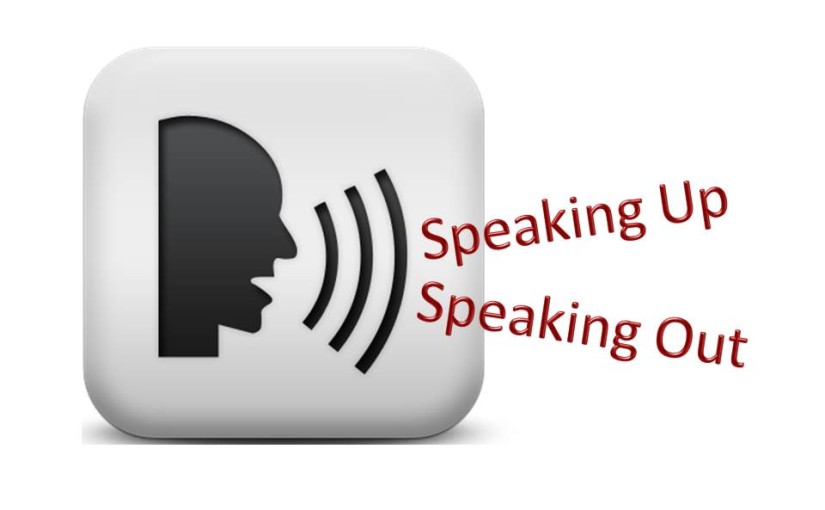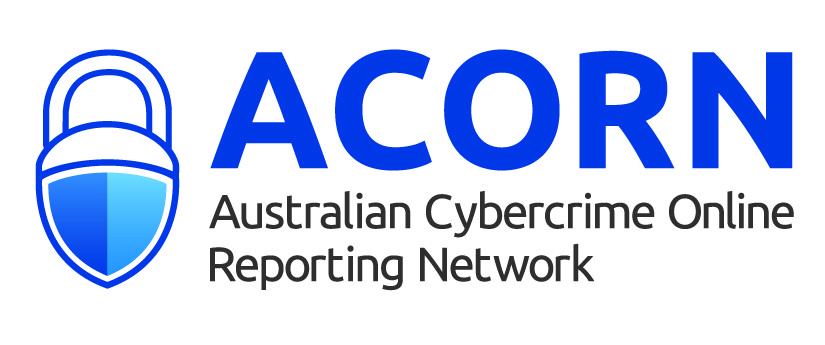Little has changed! Dating and romance scam business model still intact! Slight reductions in figures indicate the ACCC is having some impact, however the tens of millions of dollars lost is incomprehensible, and does not tell the story of the impact of the dollars lost on victims. Continue reading Scammer business model still intact!
Tag: Scams disruption project
The power of speaking out
With this week being International Fraud Awareness Week there has been the release of a report on levels of fraud in the past year from the ACCC. Romance scams account for most money lost in scams. I have been called on for interviews for news articles and TV by a number of outlets, because of being an Ambassador for ACORN, and so declaring my willingness to speak out.
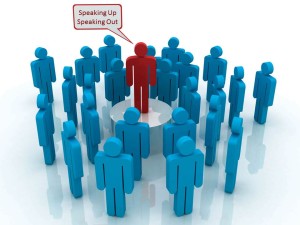
I know I have an interesting romance scam story – I was caught in a romance scam, gave away over $260,000 expecting it to be returned, and lost it all. I noticed, however, as I was interviewed for TV, that I was happy and cheerful to be doing so. Even the questions about “What did you feel at the time?” I answered with a smile on my face. I have done this a few times now.
I know they come to me because there are not too many people willing to speak out about their experience. It is hard to publicly acknowledge that I fell in love, and I was fooled by their lies. People may think I am stupid, and I was. It is a vulnerable place to be.
In speaking out, though, I own what I was responsible for.
- I own that I wanted love, and to be loved. That’s normal.
- I own that I chose to follow my heart, in giving the money to the person I thought was my partner for life, rather than be ‘sensible’ or ‘reasonable’.
- I own that I did not take heed of the warnings I was given, and stepped over the inconsistencies, thinking, no, feeling that I was ‘in love’ and that it could not be a scam with this level of intimacy.
- I own that I made a mistake, and that this has made my finances precarious to say the least, now and into the future.
Many who suffer hardship turn around and fight for it to not happen to others. The Morcombes, and Rosie Batty are the most high profile ones that come to mind, but there are many. In speaking out, particularly with a message about prevention or recovery from scams, I am doing the same. I am saying I will no longer be a victim of this singular event, I will make it have a powerful and ongoing meaning in my life, and through this, the lives of others.
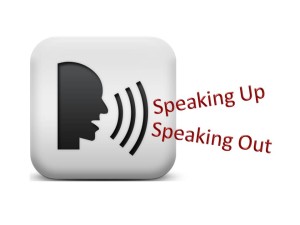 In speaking out I have regained my self-respect. I am not hiding my mistake behind shame and embarrassment. I proclaim that I am human, and that I can learn and grow from my mistake, and hopefully love again.
In speaking out I have regained my self-respect. I am not hiding my mistake behind shame and embarrassment. I proclaim that I am human, and that I can learn and grow from my mistake, and hopefully love again.
I have discovered a love of writing. As well as this blog I have written a book, though I am still looking for a publisher.
About scammers, I have learned
- They are skilled professionals, manipulating us, twisting our love to defraud us of our money
- It is not personal. By this I mean that they do not care about us personally. They are scamming many people at the same time, using the same photos and scripts/emails under different names, in teams. They actively lie to us, never intending to follow through on their promises.
I say this here because it is important to know about scammers. Without this it is too easy to say it is the victim’s fault, they were just stupid or naive. No, the victim was deliberately targeted and defrauded. And they should not be stigmatised with shame for falling victim to this. It can happen to anyone.
So what is the prevention message, for International Fraud Awareness Week?
- Be wary, and know how to check what’s true, i.e. do a Google photo search.
- Never give money, or your bank details. Don’t think it is OK if you send money via banks: These are not safe institutions in the hands of scammers. Certainly do not send money via Western Union. The money can be collected from anywhere in the world despite where you think you send it to. No-one else is going to protect your money. I made over 20 separate transactions and was never asked by anyone if it could be a scam.
- Rapid declarations of love are downright suspicious, especially when you have not met the person face-to-face, and no-matter how beguiling they sound. Scammers are very good at building up a sense of intimacy which makes you think it could not be a scam, but this is false. Promises to come and meet and marry you are false, and will never be fulfilled. Only communicate or date with someone who is local to your own area, that you can meet face-to-face.
- Educate yourself about the various red flags which might indicate a scam, and if in doubt, treat it as if it is a scam. Here’s a great example from the Scam Disruption Project.
- Speak out and educate others about what you are finding….
If you do actively protect yourself in this way it is possible to meet the love of your life online. Many people do.
This is how I came to be a Romance Scam Survivor. By powerfully speaking out. I will continue to do so.
Why it is important to report romance scams?
In my last blog I mentioned ACORN, the Australian Cybercrime Online Reporting Network. In this one I wanted share why it is so important to report romance or dating scams to organisations such as this.

As I said last time, ACORN is a national policing initiative that allows cybercrime victims to easily and instantly report cases of criminal activity online, as well as providing information on how to avoid falling victim to cyber criminals.
When I reported my scam experience, late in 2012, I reported to the local police station. I took all of my documents in, which they copied, they took my statement, and that was that. I was so embarrassed I can remember being very detached, giving a local constable the detail, but not showing any emotion. There was no sense they could do anything, and online research I did later indicated that it was unlikely that I would ever get anything back. I felt powerless to do anything about what had happened. Friends suggested I contact other policing agencies but I was so ashamed of what had happened that I could not.
The one thing I know the local police did do was report the names used by my scammers to Western Union, so that they could be stopped if used again. Only the police could do that. I also heard that Western Union reported that the money I sent via them was collected in Nigeria. That was a surprise, as I had sent the money to Dubai.
We don’t always hear about it but the fact that ACORN is set up shows that the police are doing something, and police jurisdictions working together helps get results. For example, I know of one woman in Victoria was told by Police from Western Australia that she was being scammed, which they were able to do because they were watching the account to which she was sending money. They stopped her losing even more money. The ability to watch bank accounts, Western Union and other money transfer agencies that are being used by scammers, and share this information across jurisdictions is critical to early detection and prevention of romance scams.

Another example of police jurisdictions working together is the Scams disruption project started in August last year. This saw 1500 letters being sent to people across Australia identified as sending money overseas, warning them that it may be a potential scam. This project has a great page on how to identify romance scams. 60% of the transactions stopped. For the first time this clearly identified social media as a source of the initial contact, though dating sites still were the source of 74% of the relationship formed as a basis of the scam. I wish this had happened two years before, perhaps stopped my scam happening, or at least getting so bad….
It was not easy to go into that police station and front up to the huge error I had made and the hundreds of thousands of dollars I had lost. Being able to report online will now make this easier, and hopefully mean that the event and the financial loss can be reported sooner, again enabling police to be engaged in prompt investigation and identification of perpetrators.

Effectiveness, as gauged by stopping and arresting perpetrators, cannot be achieved by local justice agencies however, as mostly the perpetrators are overseas. The building of sufficient evidence and proof, however, to take to overseas police jurisdictions is critical. Unfortunately history says it takes a death to raise the profile enough for action to be taken, as in the case of the Western Australian woman Jette Jacobs who was killed in South Africa. They did arrest her killer, and in the process, the Australian Federal Police built good relationships with the Nigerian police.
I hear that scammers are now moving to Ghana, as there are no reciprocal policing arrangements or relationships there. I also hear that the proportion of scams targeting Australians is greater than elsewhere in the world. I wonder why, but could guess, based on my own experience, that it is because we have more difficulty determining what’s true or real in places that are more distant from us.
For myself, when my scammer said he had to pay taxes in Dubai that he had not allowed for, and that people came and threatened violence and to throw him in jail if he did not pay, I had no way of assessing if this was a likely and real scenario for Dubai. Unfortunately I assumed it was true, and gave money to help. Another scenario I have heard is of a scammer claiming to have an Italian background, and the woman who was targeted knowing that the accent did not hold true because she was familiar with Italy. She realised that it was a scam, and avoided losing money because of this.
But I am getting a little off track. Over $28 million was reported lost to romance scams in Australia last year, according to the Australian Competition and Consumer Commission (ACCC), who run the ScamWatch website. At least that is what we know about, and we only know about them because they were reported. I suspect that this is just the tip of the iceberg. We won’t really know the true amounts until more are reported. If we knew the true costs to our economy, this would put pressure on police jurisdictions, parliamentarians, and dating sites to do more.
The fourth reason to report the scam to ACORN and similar organisations is a psychological one. If we do not name it for ourselves, say what has happened, tell the truth, and instead retreat into shame and silence, we remain forever a victim of the scam. By telling the truth about what has happened, calling the scam the professional and criminal fraud that it is, we can step out from behind being a victim, take small steps to regain our self respect, and become a survivor. It is the first step to owning up to the fact that we have made a mistake, learning from it, and moving forward. I hope you take (or have taken) action and become a survivor. Its not too late to go ahead and report if you haven’t already. It will still add to the picture and understanding of what is happening here in Australia even if it was some time ago.
Just to be clear, The Australian Competition and Consumer Commission’s SCAMwatch website also takes reports of scams. If you have fallen victim to a scam, you should report the matter to the ACORN. Where a crime may not have occurred, but the matter involves a scam, this can be reported to SCAMwatch to help keep Australians informed about the latest range of scams in circulation. Information on online scams reported to the ACORN will be shared with the ACCC.
For overseas readers, to report Romance Scams:
In America, make a report to IC3 The Internet Crime Complaint Center (IC3) is a partnership between the Federal Bureau of Investigation (FBI) and the National White Collar Crime Center (NW3C).
In the UK, National Fraud Authority (NFA): It seeks to coordinate existing counter fraud work across public, private and voluntary sectors.
In Canada, Canadian Anti Fraud Centre (CAFC): A call centre for victims of fraud across Canada.
Because of my willingness to speak out on these issues I have been selected as an Ambassador for ACORN. I receive no financial compensation for this.
